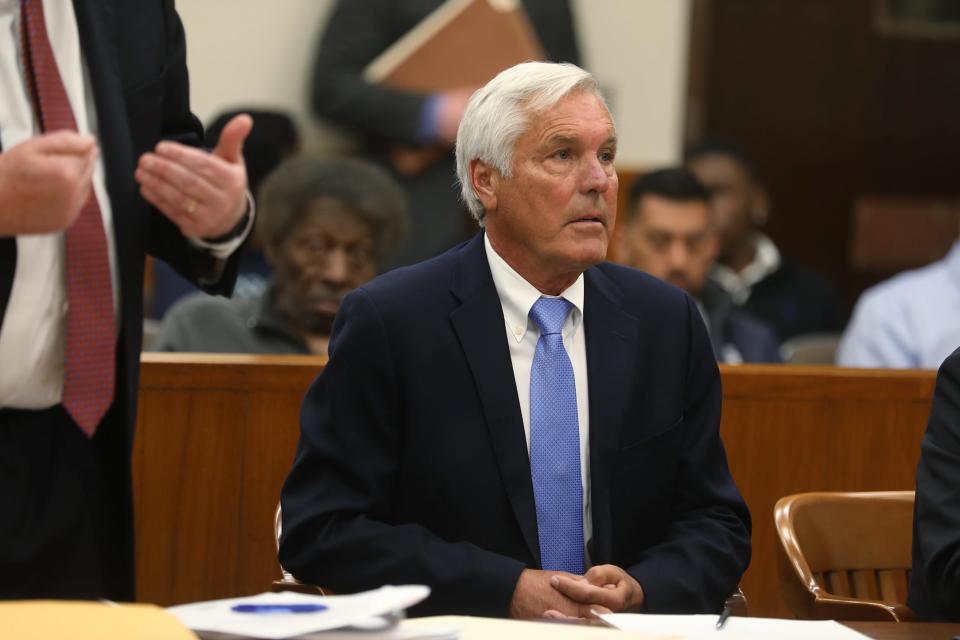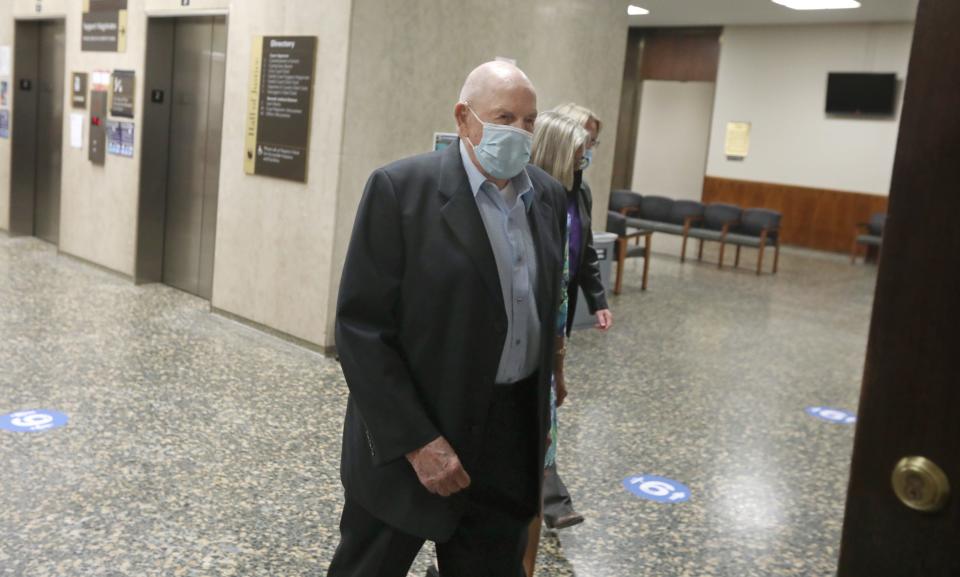Trial date set in Brighton ax murder case, 40 years after homicide
The coming year will mark the 40th anniversary of the ax-blow killing in Brighton of Cathleen Krauseneck, and in the same year her husband may be tried for the homicide.
State Supreme Court Justice Charles Schiano Jr. on Thursday set Aug. 29 as a trial date for James Krauseneck Jr., who now is accused of killing his wife with a single ax blow to the head as she lay in bed at their Del Rio Drive home.
On Thursday, Schiano also refused a defense request to dismiss the murder charge against Krauseneck, thus setting the stage for trial.

Krauseneck's lawyers also sought what is known as a Frye hearing — a challenge to forensics or other sciences used as part of a prosecution — but Schiano ruled that the hearing is unnecessary.
The science used in a recent analysis of Cathleen Krauseneck's likely time of death — an analysis more in line with a time when her husband was in the house — has been accepted science and is not novel, Schiano ruled.
More: Should charges be dropped in 1982 Brighton ax murder? Judge to decide
Schiano made clear that he would like to start the trial as soon as possible, but there are still pretrial issues to be ironed out and the trial could last a month or more. The trial's expected duration left later in 2022 as a time when there were no conflicts with the attorneys and Schiano's schedule.
Discussing his hope to get to trial soon, Schiano noted the age of many surviving witnesses and others. Cathleen Krauseneck's father, Robert Schlosser, is now 94, and has traveled from Michigan to Rochester for earlier hearings. His wife has died.
James Krauseneck Jr. was indicted in late 2019, but court proceedings last year were slowed by the pandemic.
The fact that some witnesses have died was one of the issues raised by defense in its request that the case be dismissed. Needed witnesses, whose testimony could help Krauseneck, have died, they argued.
Prosecutors say there is ample evidentiary record of the testimony of individuals who have died, and that evidence can be introduced at trial through those records.
More: Murder charge against former Rochester resident Larry Timmons dropped
Schiano ruled that there will not be harm to Krauseneck's defense with evidentiary testimony from individuals who have died. In fact, he said, there may be benefits, since now-dead witnesses whose testimony could help Krauseneck can not be cross-examined by prosecutors.
For instance, two of Krauseneck's workplace colleagues at Eastman Kodak told investigators that he had acted normal at work on Feb. 19, 1982, the day he later found his wife dead at the home. Prosecutors maintain that Krauseneck killed her before leaving for work, then left her corpse in the home with the couple's 3½-year-old daughter.

At trial, the defense plans to use the statements from the Kodak workers.
Defense lawyers also said they will be significantly hindered by the death of Brighton police who could perhaps answer why a sadistic sex offender, Ed Laraby, who lived near the Krauseneck home, was not questioned. There is a record of a now-deceased officer going to Laraby's home and being turned away in 1982, but there appears to have been no follow-up.
Laraby died in prison in 2014 after being charged with a murder to which he confessed in an admission that showed significant knowledge of the homicide. Laraby, who police say was angling to be treated for illness outside of prison, also made confessions to other killings, including Krauseneck's.
Those statements, however, were drastically off-base about the crimes, prosecutors and police say. In his ruling Thursday Schiano wrote, Brighton police "investigators were told by the New York State Police that Laraby was even confessing to murdering persons that were still known to be alive."
Schiano will allow evidence of Laraby's statements about the Krauseneck homicide at trial.
Contact Gary Craig at gcraig@gannett.com or at 585-258-2479. Follow him on Twitter at gcraig1.
This article originally appeared on Rochester Democrat and Chronicle: Trial date set in Brighton NY ax murder case, 40 years after homicide
